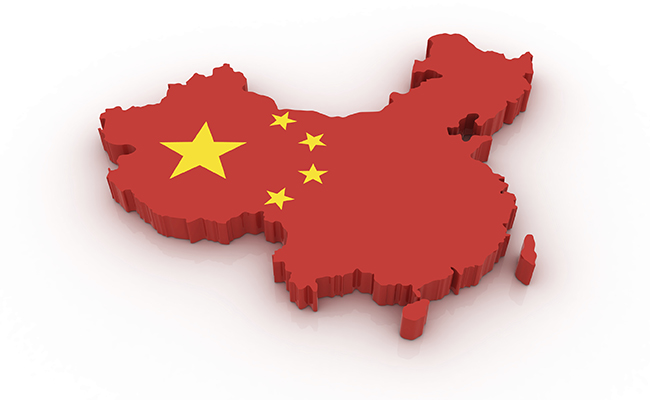The week that was: Beijing continues to restrict shadow banking practices; top economic planning agency approves more coalmines; a 13-year-old ban on video game consoles is lifted temporarily; and L’Oréal pulls the plug on the Garnier brand in China.
Gaming consoles set to come back to China, legally
If you see a Chinese guy playing on a PSP in the subway, it’s very likely that the device was bought from the black market, because a ban on gaming consoles including Sony’s Play Station and Microsoft’s Xbox has been in place since 2000.
But according to Xinhua earlier this week, the State Council lifted the curb in Shanghai Free Trade Zone, China’s newest and boldest testing ground for economic reform. Video game consoles can be manufactured inside the zone, and those deemed “appropriate” by authorities will be allowed to enter the market nationwide. According to CNN Money, although such gaming devices are already being manufactured by contractors in China, those that will be sold domestically in China have to be made within the free trade zone.
Even though China’s gaming console market is estimated to be as large as $40 billion, according to analysts, it may still be risky for the manufacturers to relocate their facilities massively at this stage. The decision to lift the ban, just like many other policies regarding the zone, is still “temporary”, not to mention that Beijing can be really sensitive to what games can run on those consoles.
The fight on shadow banking continues
Beijing may not agree with Gorge Soros’ recent comment that China’s debt growth “cannot be sustained for much longer than a couple of years”, but it is not turning a blind eye to the elephant in the room neither. This week, various financial media, including Bloomberg and the Wall Street Journal, reported on a new document released to banks and financial institutions by the General Office of the State Council in December, defining and imposing tighter regulations on shadow banking practices. The rules are meant to contain the risks of growing credit, not crack down on shadow banks in a simplified way, analysts said.
The release of the document, which is referred as “Document no. 107” in Chinese media, has not been confirmed officially. According to the Financial Times, the document stated that “our country’s shadow banking risks are under control overall”, before addressing the “complex” and “hidden” risks that can “spread easily causing systemic problems”.
China added coal capacity despite toxic pollution
Increasing coal production is probably not one of the ways to fight against the air pollution that’s choking nearly half of China, but that’s apparently what happened in 2013, according to data compiled by Reuters. Fifteen new coalmines were approved by China’s central planning agency—the National Development and Reform Commission (NDRC), and the total annual capacity of those coalmines can be as high as 101.3 million tons, which is six times more than the increase in 2012, Reuters reported.
China’s efforts to restraint excessive coal consumption have been going on for years, and more than 300 million tons of capacity has been shut down in the past decade, according to Reuters. But now critics are worried that the new mines will outpace the closures and simply shift the pollution elsewhere from the traditional coal-producing areas.
While more coal is needed to sustain the world’s most populous nation, the number of cars is on the rise as well. According to Bloomberg, a record 20 million automobiles were sold in China in the past year—a global first. Although more cities are thinking of imposing buying quotas, deliveries are predicted to rise another 10% in 2014.
Another Chinese cellphone brand is sailing to the US
As China’s best-known cellphone start-up Xiaomi is expanding in Singapore, Meizu, another domestic Chinese brand, has chosen to enter an even tougher market—the US.
According to Tech In Asia, Meizu’s latest flagship handset, the MX3, has debuted at Consumer Electronics Show (CES) this week in Las Vegas. The company has also revealed that a newer model of the Android phone will be available in the US starting in September this year.
Meizu is known as one of the earliest phone start-ups in China. The former music player maker released their first smartphone back in 2009, causing quite a stir at that time. Meizu was also among the first Chinese electronic makers that replaced traditional advertising with extensive online marketing.
Other Chinese cellphone makers eyeing for the US market include tech giants like Huawei and Lenovo, both of whom have shown keen interests in launching in one of the most competitive markets in the world in 2014.
L’Oréal pulls sub-brand out of China
Following the US cosmetics maker Revlon’s retreat from China last week, the world’s largest beauty-product company L’Oréal has decided to cease the sales of its Garnier beauty and hair products in China to focus more on two of its main presences in the region—Maybelline and L’Oréal Paris.
The French company introduced Garnier to China in 2006, according to Bloomberg, but it only accounts for about 1% of L’Oréal’s Chinese sales. Analysts believe that the poor performance of the brand is partly because that its name got stuck in the middle—while known to consumers as a low-end line of L’Oréal, it’s not cheap enough to capture the mass market.
Alibaba says no to bitcoin
E-commerce giant Alibaba has banned the use and sale of bitcoin on its Taobao platform, China’s largest online marketplace. The announcement came on Tuesday, and the effective date is set at January 14.
The move is hardly new to the recent tightening of the bitcoin rules in China—Beijing strengthened bitcoin regulations twice in December, and Alibaba is now simply complying with the order that no virtual currency should be used to purchase real goods or services. As of publishing, a message popped up when we ran a keyword search for the digital currency—“Products related to bitcoin can’t be shown due to relative laws and policies”.




















